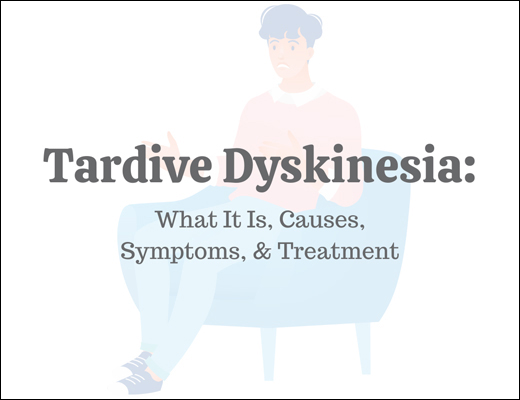Ayurvedic Treatment for Tardive Dyskinesia with Herbal Remedies
Abstract
A movement disorder is a condition of the nervous system that affects movement in the body. The movements induced are involuntary, i.e., not under the patient’s control. One such disorder is tardive dyskinesia. It is usually caused by long-term use of certain medications, especially neuroleptic medicines (medicines used to treat psychotic conditions). It is estimated that the prevalence of tardive dyskinesia is around 20% in patients who are treated with first-generation antipsychotic medications. Contemporary treatment options are limited, a bit expensive and studies done on the management of this disease have shown mixed effectiveness. This article will discuss the Ayurvedic view point of Tardive dyskinesia as well as its management through herbal remedies.

Introduction
‘Tardive’ means delayed and ‘dyskinesia’ means involuntary muscle movement. Tardive dyskinesia is an iatrogenic neurological syndrome majorly characterized by involuntary repetitive movements like rapid eye blinking, puckering of lips and other jerky movements. The effect seen can either be increased and rapid movements or decreased and slow movements. This condition is most common in people with schizophrenia and bipolar disorder who are treated with antipsychotic medications. However, it can originate in the treatment of any disease.
Causes
The exact cause of this disease is still not known but research shows that this disease develops due to the long term use of dopamine receptor blocking medicines. These medications work by blocking dopamine for a prolonged period. This can result in the dopamine receptors of the brain to become extra sensitive. In this condition, the most affected part of the brain is seen to be basal ganglia. The function of basal ganglia is to control movement of the body. Therefore, extra sensitive receptors — leads to involuntary movements. This condition may also be induced in excess levels of dopamine.
Class Of Drugs That Can Cause Tardive Dyskinesia
- Antipsychotic drugs (especially first generation)
- Antiemetic drugs
- Antidepressants
- Antihistamines
- Antiseizure drugs
- Antimalarial drugs
Can You Prevent Tardive Dyskinesia
This disorder is quite unpredictable. The above-mentioned medications don’t develop Tardive dyskinesia in every patient but having risk factors can make one more prone to the disease. Hence, it is possible to prevent it by simply choosing different medications or consuming said drugs on a lower dosage.
Risk Factors
Lets us have a look at the risk factors that make you more prone to this condition:
- Sex – Women are more at risk to develop Tardive dyskinesia than men. It is seen that use of antipsychotic drugs leads toTardive dyskinesia in almost 30% of post-menopausal women.
- Age – People of older age (above 50) are more prone to develop this disease.
- Psychotic Disorders – Such patients consume antipsychotic drugs on a regular basis. They are more likely to develop this condition. Moreover, use of first-generation antipsychotics instead of second-generation increases the chances of developing Tardive dyskinesia.
Symptoms
The first and main symptom of pancreatitis is pain in the abdomen. Some other symptoms are:
- Involuntary movements of neck, arms, legs etc
- Smacking or puckering lips
- Moving your tongue inside the mouth or sticking it out
- Making a frowning face
- Making chewing movements
- Clicking fingers
Signs
- Muscle contractions in the body
- Unable to remain still
- Rocking of pelvis
- Blinking the eyes very fast
- Walking abnormally like a duck
- Face twitching
Diagnosis
Tardive dyskinesia can be diagnosed through a physical and neurological exam to evaluate cognition, coordination, reflexes, muscle tone and level of consciousness. Imaging tests like brain CT and MRI can be ordered to rule out other conditions like Huntington’s disease that affects the brain cells and causes similar symptoms.
Management
It is possible to manage this condition with medications like VMAT inhibitors to control unwanted movements. If possible, medications causing tardive dyskinesia can also be replaced.
Ayurveda Aspect
A direct translation of tardive dyskinesia is not mentioned in Ayurveda. However it can be correlated with Kampavata. Kampavata is one of the 80 Vataj Nanatamaj Vikara as mentioned in Verse 11, Chapter 20, Sutrasthana, Charak Samhita. The word Kampa means tremors and Vata refers to the aggravation of the Air element or Vata dosha in the body. Hence, the dominant dosha present here is Vata. Vata dosha is responsible for any type of movement in the body. In Kampavata, an increase in the mobile quality of Vata is observed. This stimulates tremors or involuntary movements beyond a normal threshold such as rapid blinking of eye, twitching of facial muscles etc.
Etiopathology Of Kampavata
- Regular practice of the following factors causes Vata dosha to get pathologically aggravated in the body:
- Consumption of dry, cold and nutritionally deficient food
- Irregular meal timings
- Regular practice of prolonged fasting
- Performing rigorous physical or sexual activities
- Excessive negative emotions like anger, grief, sorrow and envy
- As a result Vata Dosha accumulated in Vata predominant places in the body like intestines, legs, bones, skin etc.
- Tremors are seen in mild form, often short lived with prolonged intervals. They often get unnoticed by the patient.
- With further vitiation of Vata Dosha, disease manifestation spreads towards other organs in the body (e.g. eyes) which are not the natural sites of Vata Dosha.
- Now, the frequency of the tremors increases along with decrease in interval. Kampavata can also present as a secondary form of manifestation of some other disease like epilepsy.
Treatment Of Kampavata
The general line of treatment for Kampavata is Vata pacifying:
क्रियामतः परं सिद्धां वातरोगापहां शृणु |
केवलं निरुपस्तम्भमादौ स्नेहैरुपाचरेत् ||
वायुं सर्पिर्वसातैलमज्जपानैर्नरं ततः |
Reference – Charak Samhita, Sutrasthan, 28/75
This shloka states that in case of independent vitiation of Vata dosha without obstruction in the body, it should be treated first hand with oleation therapy (Snehan) by administering ghee, animal fat, oil or bone marrow to the patient.
External Treatment
- Oil Massage (Abhyanga) – Medicated oil therapies are used to reduce the rapid muscle movements. One of them is therapeutic oil massage with medicated oils like Balashwagandhadi Tailam, Ksheerbala Tailam etc.
- Oil streaming (Taila Dhara/Shirodhara) – A continuous stream of medicated oil is poured over the body or head.
- Sudation Therapy (Swedan) – It is usually done after oil massage. It encourages the elimination of toxins from the pores of the skin.
Internal Treatment
- [Pacification] Consumption of medicated ghee containing neuroprotective herbs is the first choice of medicine in the treatment plan. E.g. Brahmi ghritam, Saraswatha ghritam etc.
- [Purification] Purgation (Virechan) is done with oil based medicines like Sukumar Ghritam.
- Enema (Basti) is the best procedure for Vata disease management. Enemas like Erandamuladi Kshaya Basti are used in the treatment of Kampavata.
- Nasal administration (Nasya) of medicated oil drops is also done.
Herbal Remedies For Tardive Dyskinesia By Planet Ayurveda
Planet Ayurveda is an Ayurvedic company practicing manufacture of herbal products that are completely devoid of any kind of chemicals or additives. The purity of the products is one of the reasons for the fast results that they give. Here are some herbal remedies that are useful in the management of tardive dyskinesia:
- NeuroGenie Capsules
- Vrihat Vatchintamani Ras
- Vikramprash
- Saraswatarisht
- Kalyanak Ghrita
Products Description
1. NeuroGenie Capsules
This herbal formulation contains standardized extracts of the plant of Brahmi (Bacopa monnieri) and roots of Ashwagandha (Withania somnifera). This preparation provides a calming effect to the brain and the presence of withanolides provides adaptogenic benefits that help reduce stress in the mind. It increases cerebral blood flow and protects against oxidative damage. It reduces neuron excitability and helps dopamine neurons from damage that eventually leads to balanced dopamine level in the body and better control over motor functions.
Dosage: 2 capsules twice daily, after meals with water.
2. Vrihat Vatchintamani Ras
This classical formulation contains swarna bhasma (gold calyx), rajat bhasma (silver calyx), abhrak bhasma (calyx of mica), praval bhasma (coral calyx) etc. It is Vata pacifying in nature thus useful in neuromuscular disorders. The nano-particles in this formulation can cross the blood brain barrier. It helps to manage tremors, anxiety and restlessness that is caused due to high dopamine levels.
Dosage: 1 capsule twice daily with water, after meals or as directed by the physician.
3. Vikramprash
It is a jam based preparation that contains rejuvenative herbs like Amalaki (Embilica officianalis), Bala (Sida cordifolia), Agnimanth (Premna mucronata) etc. It is nourishing in nature which helps to pacify Vata dosha. Its anti-seizure property also helps to control involuntary twitching of muscles. It has calming and sedative properties that help to slow down rapid movement of muscles. It acts as a brain tonic and helps in strengthening the nervous system.
Dosage: 1 tsp twice daily with lukewarm water after meals.
4. Saraswatarisht
It is herbal liquid medicine that contains ingredients like Shatavari (Asparagus racemosus), Vidarikand (Pueraria tuberosa), Khas (Vetivaria zizanioides) etc. It helps to regulate the neurotransmitters and neurochemicals. It balances dopamine level and decreases the associated side effects like rapid eye blinking, uncontrollable movement etc. Anxiety can make Tardive dyskinesia worse. This rejuvenative and neuroprotective preparation will also help to reduce anxiety.
Dosage: 2 tsp twice daily with equal water or as directed by the physician.
5. Kalyanak Ghrita
Kalyanaka Ghrita is a natural medicine that contains herbs like Haritaki (Terminalia chebula), Daruharidra (Berberis aristata), Badi Elaichi (Ammomum sabulatum) etc. This herbal ghee preparation will pacify the aggravated Vata. It induces calmness and control over the mind which helps to regulate the involuntary movements of the body. It focuses on reducing tics and tremors in tardive dyskinesia. It exerts nootropic effects over the brain.
Dosage: 1 tsp twice daily with warm milk or water or as directed by the physician.
Conclusion
In an era, where modern medicines are evolving everyday, Ayurveda is proof of the knowledge of ancient cultures. In pancreatitis, modern medicine approaches symptomatic treatment but Ayurveda manages the conditions by knowing the exact root cause of the disease. With proper diet, lifestyle and herbal formulations people with pancreatitis can improve their life.




